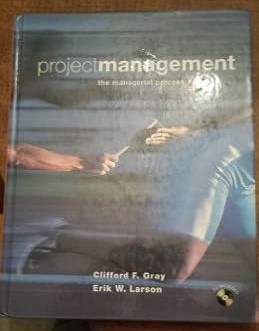Question
Sizematters. Ordoesit?Thatwasthedilemma facingSuhasNairandhisteam.The issue under discussion was the restructuring of Indian General InsuranceLtd. (IGIL), the largest, state-owned, non-life firm in the country. Nair had apersonal
Sizematters. Ordoesit?Thatwasthedilemma facingSuhasNairandhisteam.The issue under discussion was the restructuring of Indian General InsuranceLtd. (IGIL), the largest, state-owned, non-life firm in the country. Nair had apersonal stake too. His tenure as chairman and Managing Director of IGIL wasto end in two years. And he was keen on hanging up his boots on a high note.Nairopenedthemeeting:"ShouldwemergethefoursubsidiariesofIGILintoasingle outfit that would give us the advantage of size?" "Or should we delink theminto learner,autonomous,andagile unit?"
"Just to provide a perspective," said Rajiv Parasnis, Director (ManagementServices), "consolidation is the global trend. Look at Japan. The top six insurersareinmerger-talks.""Outcontextisdifferent,"saidAnupSinha,Director(Personnel). "First, the insurance markets where consolidation is taking placeare mature, making it easier to diversify into other financial services, invest intechnology, and expand our operations.A merger will also help integrate ourbusiness."
"Let us look at the numbers," said Abhinav Saran, Director (Finance), punchingsome keys on his laptop. "A merger will bring in 85,000 employees one roof.We will have a total of 80 regional offices, 1,200 divisional offices, and 2,920branch offices. Out combined free services would be Rs. 6,450 crore, net worthRs. 7,360 crore, investment income Rs. 2,350 crore, and total investment Rs.19,000 crore. And all this on a modest equity of Rs.375 crore! We can leveragethis enormous clout to attract new business. We will also be able to reduceoverhead costs.Liketherentout flow, forexample.Amergerprevents duplicationsofbranches resultinginhugesavings.Andthatisjustoneexample."
"But, Abhinav," chipped in Suresh Talwar, the newly-appointed Director (IT), "amerger will pose problems of integration. This becomes a time-consumingactivity for senior managers, overriding their business concerns. True, each ofoursubsidiariesisfinanciallystrong. However,eachsegment ofnon-lifeinsurance has different parameters of performance. There is simply no parity.That is why it is best to set up an autonomous unit for each activity of non-lifebusiness."
"Talwar has a point", remarked Vijay Santoor, Director (Operations). "A mergerdownplays all the inherent weaknesses in the system. Take, for example, ourmotorportfolio.Itrepresentsover30%ofthetotalpremium.Butisaloss-making line in all our subsidiaries mainly because of laxity in underwritingand claims control? Once you spin it off, you ensure discipline. Of course, youneed to move of the current pattern of cross-holding among subsidiaries andmakeeachofthemtrulyindependent."
"Both approaches have their merits," said Nair. "There is also the growingbusiness of reinsurance. If we decide on a break-up, it makes sense to convertIGIL from a holding company to a national reinsurer. If we merge, we may beable to live up to our corporate vision of being among the world's majors innon-lifeby2015.Still giventherightfocus,thereisnoreasonwhysomeofoursectoral businesses cannotreachaglobalscale.
1. What strategies should IGIL follow to retain its market leadership?
Please formulate a detailed explanation. Perhaps provide an introduction base on question before answering the question. Provide references. Thanks.
Step by Step Solution
There are 3 Steps involved in it
Step: 1

Get Instant Access to Expert-Tailored Solutions
See step-by-step solutions with expert insights and AI powered tools for academic success
Step: 2

Step: 3

Ace Your Homework with AI
Get the answers you need in no time with our AI-driven, step-by-step assistance
Get Started


